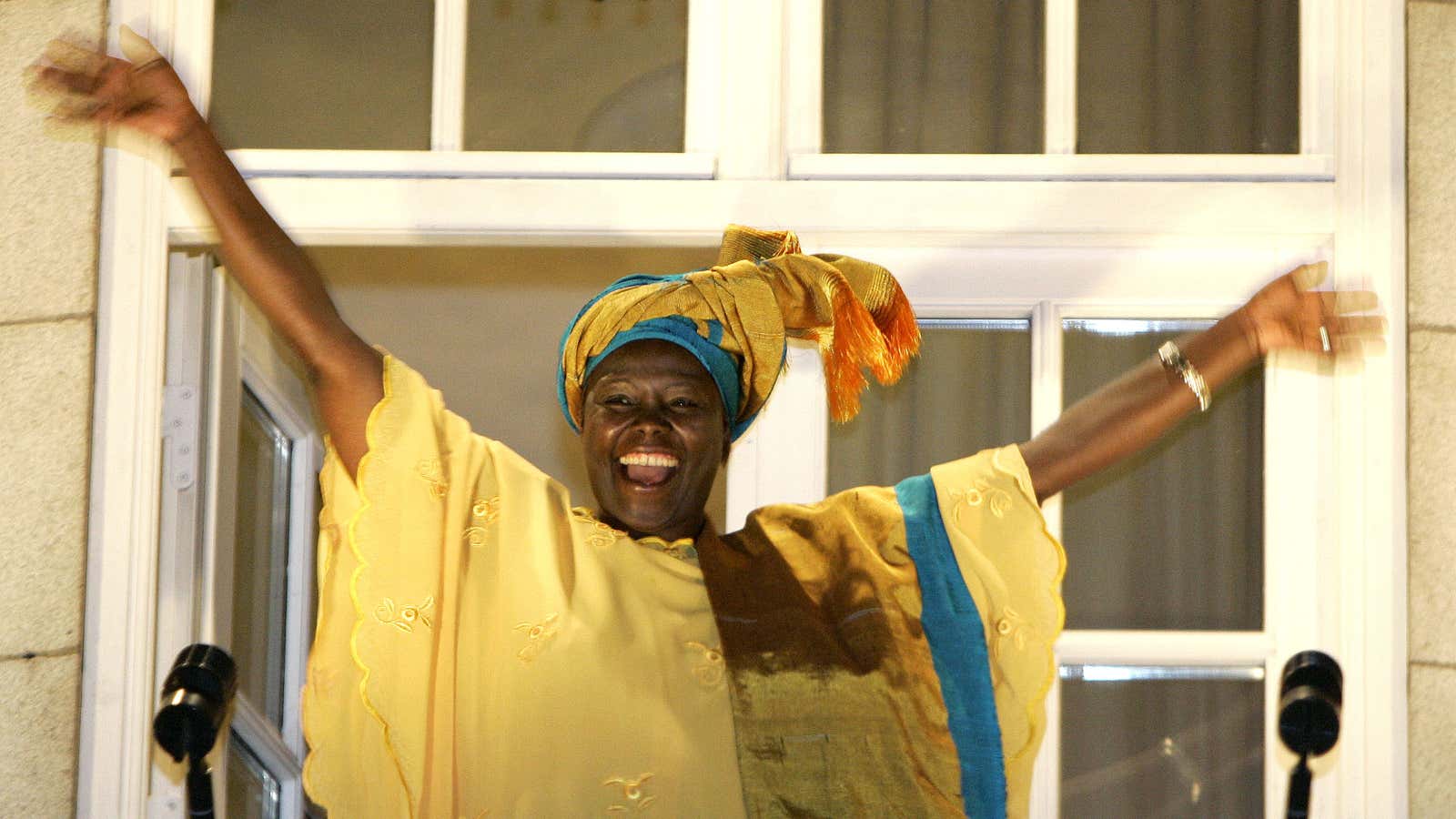This week, Wole Soyinka, the first African to win the Nobel prize in literature, said he wanted another award: The Grammy. Speaking at Oxford University, Soyinka was responding to Bob Dylan’s recent crowning as the winner of the prestigious literature prize, when he said: “Since I’ve written quite a number of songs for my plays, I would like to be nominated for a Grammy.”
To be fair to Soyinka, our attention shouldn’t be drawn so much to his flippant remark than on the choice of the award he stated. Africa, a continent of over 1.2 billion people, barely registers globally when it comes to honoring excellence and merit or even acknowledging the role of awards in social, scientific and cultural advancement.
There are currently numerous awards that recognize distinction across the continent. Yet few if any are based within the continent, or work to provide spaces or incentives on a daily basis, rather than reward excellence in general. The most prominent awards directed at the continent are funded from abroad, whether in engineering and medicine (Africa Prize for Engineering Innovation or the Hideyo Noguchi Africa Prize), writing and translation (Caine Prize or the Mabati-Cornell Kiswahili Prize), poetry and adult fiction (Brunel and the Burt award), besides the Mo Ibrahim prize in African governance. There are also some local awards, some of which are country-specific (Jomo Kenyatta Prize for Literature or the Nigeria Prize for Science), while others are awarded to a few countries or a specific region (South African Independent Publishers Award).
In many cases, awarding prizes could be an expensive commitment because it involves advertising, processing nominations, judging and finally mounting award ceremonies. And given the limited amount of institutions that might have the sufficient financial standing to host these prizes in the continent, hinders the development of prizes.
But that shouldn’t discourage Africans from aspiring to make these awards a reality, says Calestous Juma, a professor at the Harvard Kennedy School, and who has been on the judging and nominating committees of numerous global prizes. “We rightly light up when it comes to pulling down statues that offend our sensitivities or portray us in negative terms,” Juma says. “We need to release the same level of energy when it comes to erecting news ones that honor Africa’s achievements that lie buried in the trenches of neglect.”
Juma added, “that society hardly advances until there are as many prizes as worthy winners.” And in Africa, “It is not possible to know this until prizes that set benchmarks and expectations are created.”
The business of awards and prizes have been around for a long time—one estimate puts it as far back as 1714. But it wasn’t until the beginning of the 20th century that awards rose as an instrument of cultural change and a valuable tool for problem-solving. The Nobel, the Pulitzer, the Oscars were all handed out before World War II, and soon after the Emmys came at 1949 and the Grammys in 1959. Since then, there has been an explosion of awards, memorial prizes, and grants, all being applied to a wide range of societal objectives and by a wide range of sponsors. A July 2009 study by the management consulting firm McKinsey found that an upward of 60 prizes debuted since 2000, representing $250 million in new prize money.
Africa has myriads of challenges whose solutions could come from encouraging more local prizes in diverse fields—from science and technology to engineering, mathematics, and medicine. By establishing them, different countries would signal to their people that they value innovation, says Juma. “It is not that Africans cannot innovate. They simply lack the incentives that make the search for solutions part of the cultural routines,” he said.
One project that is specifically nurturing creativity and funding for east Africans is the Heva Fund. The project is built on the premise of supporting creative producers so that they can build sustainable businesses that would allow them to produce resonating cultural work while profiting from it. George Gachara, a managing partner at Heva, said that to spur innovation and expand the space for expression and investigation, there’s need to create an ecosystem that can fund Africans.
“The landscape is quite difficult for creative entrepreneurs, artists and thought leaders to produce work,” says Gachara. “The quality of production will always be as good as the investment around creative production, infrastructure [and] distribution.”
